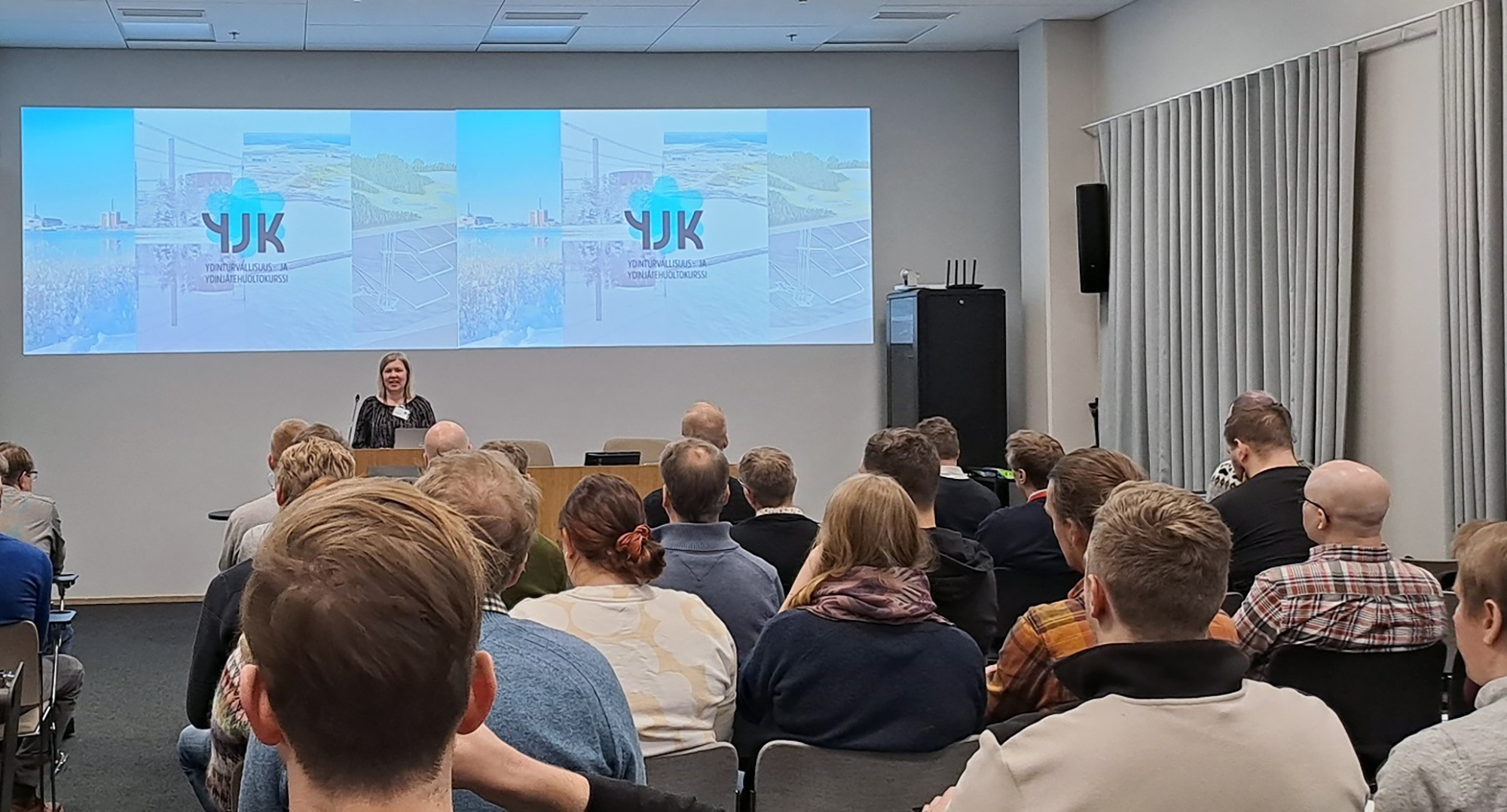Two decades of learning in the nuclear industry — anniversary of the YJK course
The national nuclear safety and nuclear waste management course (YJK) celebrated its 20th anniversary last year. The course, which is conducted annually in co-operation with various organisations in the nuclear energy sector, is aimed at those working in the sector. So far, approximately 1,500 people have participated in the course, and it is also an important part of the training provided to STUK employees.

The YJK course is organised annually in co-operation with various parties in the nuclear power and nuclear safety sector, including nuclear power companies, universities, government agencies and institutions. The first national nuclear safety course began in autumn 2003 as supplementary training for new specialists, coordinated by Lappeenranta University of Technology. One of the incentives for the establishment of the course was the labour requirement of the Olkiluoto 3 project. The course structure was largely based on the IAEA’s six-week basic nuclear safety training package.
The content and structure of the YJK course has been continuously improved since the first year to reflect the development and changes in the nuclear sector. Students and lecturers have also been heard developing the course: the organisers have collected feedback on individual units and the entire course, which has been used to further refine the content and structure of the course. From the very beginning, STUK has played an active role in the development and guidance of the course.
Course reform sparked by the coronavirus pandemic
The YJK course stopped along with the rest of the world in 2020. Due to the coronavirus pandemic, it was not safe to organise the YJK18 course, and after a long discussion, the course planning team decided to take a year off from organising the course. However, the year did not pass idly, but rather the time was used to completely reform the course.
In autumn 2021, a completely reformed and digitalised YJK course was launched. It complemented traditional lectures with remote learning with digital content. The revised course cut the amount of in-person teaching in half and allows students study updated content in the form of video lectures and podcasts, for example. Based on the latest course feedback, the students have been satisfied with the hybrid course.
The current nuclear safety and nuclear waste management course is divided into six units, each with their own theme, ranging from the safety principles of nuclear power plants and nuclear waste management to operational safety and preparedness operations. In addition to self-study, each unit includes two to three days of in-person study, during which the students get acquainted with various nuclear energy sector operational locations around Finland.
Visits and in-person networking were emphasised in renewing the course, as the planning team considered the basic starting points of the course. The laboratory visits, demonstrations, group work and, of course, more informal evening programme that the course offers have proven to be the highlights of the study periods for many participants. For example, for those whose duties do not involve much practical supervision at nuclear power plants, a visit to the plant can be a unique experience that provides perspective and helps understand their own role as part of the bigger picture.
Important co-operation
The course has been organised collaboratively since the beginning. STUK, Lappeenranta-Lahti University of Technology LUT, VTT, Posiva and the power companies Teollisuuden Voima (TVO) and Fortum each take responsibility for organising one course unit and offer their experts to lecture during other units as well. In addition to the unit hosts, representatives of other parties in the nuclear energy and nuclear safety sector are also present in organising the course, giving lectures and studying. Together, the organisers’ representatives form a planning team of twenty people who are responsible for organising the course annually, from fine-tuning the lecture schedules to arranging the course days and grading the exam answers.
The course participants are students at the Lappeenranta-Lahti University of Technology (LUT).
If desired, the completed course can be included in further studies at LUT and Aalto University as well as studies at other universities in accordance with the responsible teachers' guidelines.
The 20th implementation of the national YJK course was organised in the academic year 2023—2024, and the 20th anniversary seminar was held in October 2024. STUK's Development Planner Pilvikki Riipinen, who co-ordinates the course, says that organising the YJK course in co-operation with nuclear energy organisations is unique worldwide.
"The course is still very popular and sought-after among different organisations. New operators are also willing to join the implementation, which means that the course has a very good reputation in the industry. No major changes to the structure of the course are to be expected, but naturally we will continue to refine and fine-tune it annually. The course takes into account changes in the industry," says Riipinen.
What would Pilvikki say to a person working in the industry who is still thinking about joining the YJK course?
"I wholeheartedly encourage you to join! People feel the course is worth the resources it requires. The broad scope of the course has been praised in particular. Networking with others working in the field has also been mentioned as a key strength of the course."